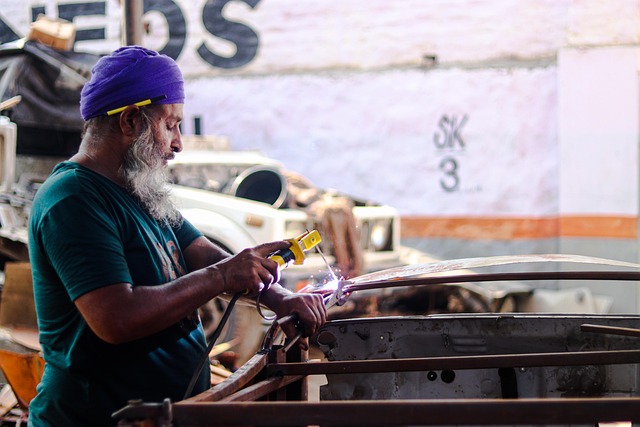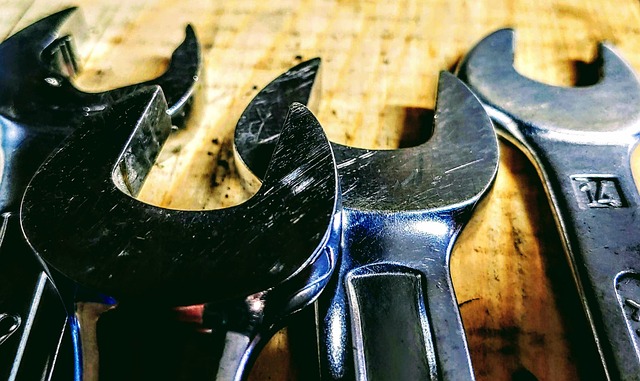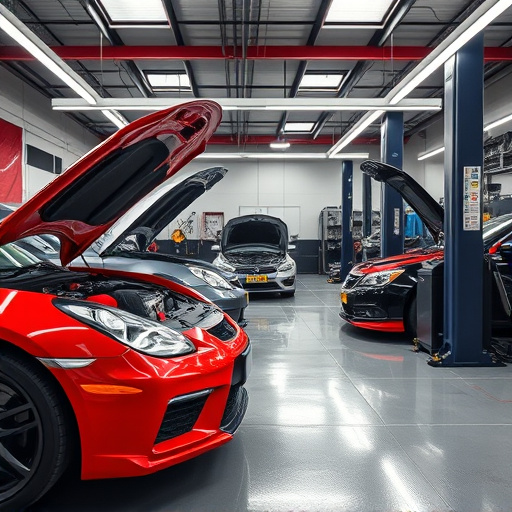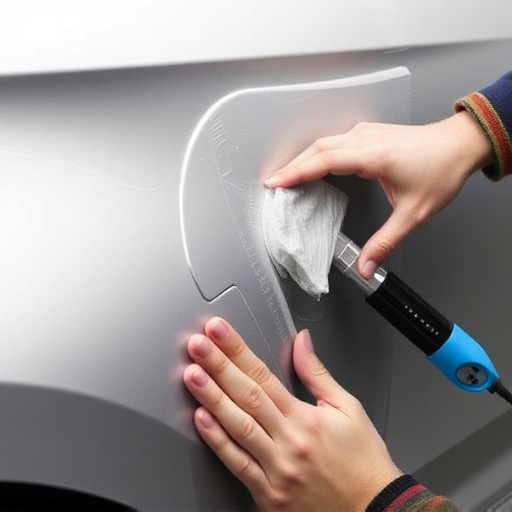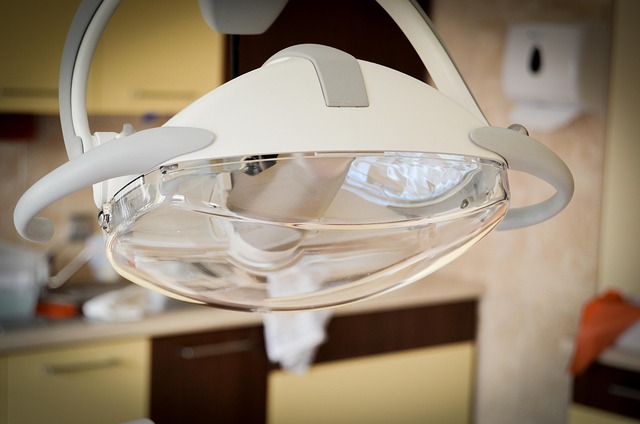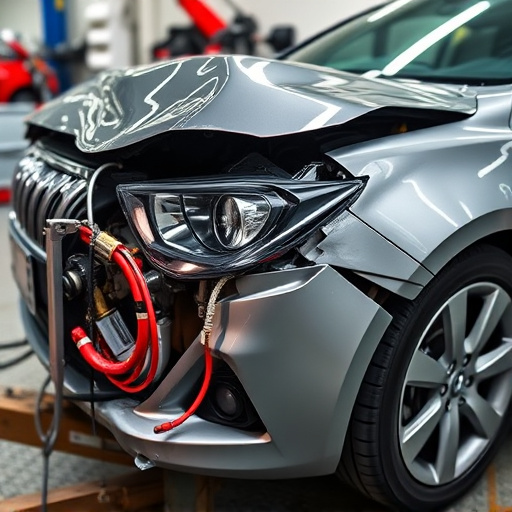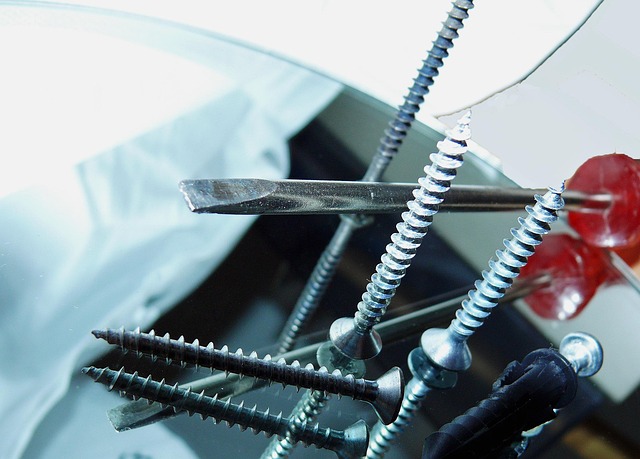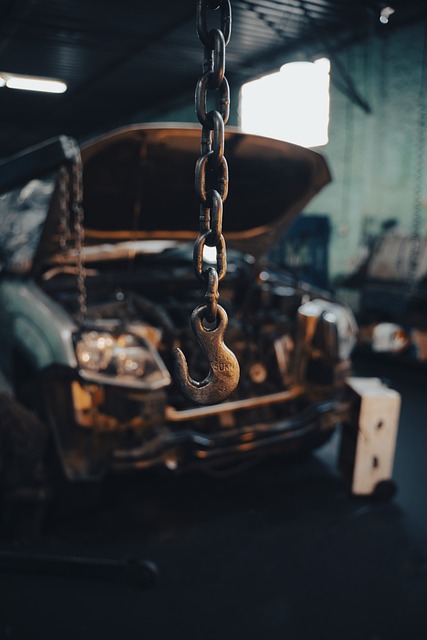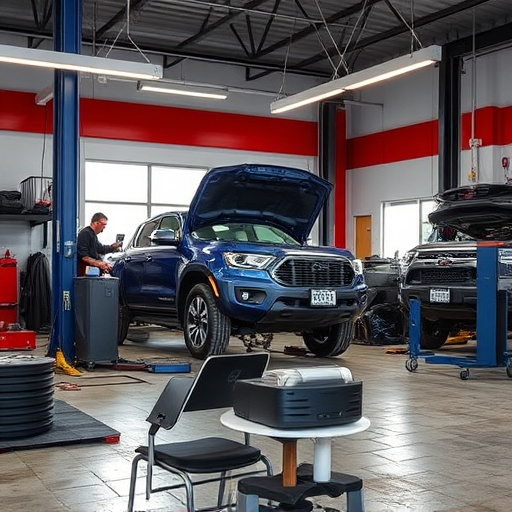Dealers expect auto collision repair shops to meet stringent standards for aesthetics, safety, and accuracy, collaborating closely for customer satisfaction and dealership reputation. Building trust through transparent communication, accurate estimates, and superior workmanship fosters long-term client relationships. To optimize operations, shops should streamline workflows with digital systems, adopt modern technologies, provide advanced staff training, and invest in specialized equipment to enhance precision, quality, and speed, staying competitive in the market while ensuring satisfied customers and improved profitability.
In the competitive automotive industry, effective dealership recommendations for collision repair shops are vital. This article explores key strategies for success in the auto collision repair sector. We delve into understanding stringent shop standards, fostering trust with customers, and optimizing operations for efficient service delivery. By implementing these best practices, collision repair shops can enhance their reputation, build long-lasting relationships, and thrive in a bustling market, ensuring customer satisfaction and business growth.
- Understanding Auto Collision Repair Shop Standards
- Building Trust and Long-Lasting Relationships with Customers
- Optimizing Operations for Efficient Collision Repair Services
Understanding Auto Collision Repair Shop Standards
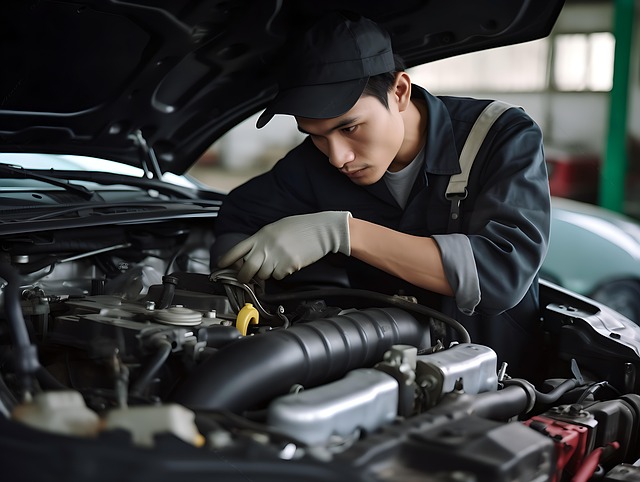
When it comes to collision repair, dealerships have specific standards they expect from auto collision repair shops. These standards are designed to ensure that vehicles are restored to their pre-accident condition while maintaining the vehicle’s original aesthetics and safety features. Understanding these requirements is crucial for any shop looking to work with dealerships. Auto collision repair shops must possess the expertise and equipment to handle a wide range of damage, from minor dents and scratches to major structural repairs.
Dealers also prioritize communication, timely turnaround, and accurate estimates. The process involves careful assessment, precise measurement, and adherence to manufacturer guidelines for replacement parts, especially in cases of car restoration or auto body restoration. Effective collaboration between the dealership and the repair shop is vital to meet these standards, ensuring customer satisfaction and maintaining the dealership’s reputation.
Building Trust and Long-Lasting Relationships with Customers

At an auto collision repair shop, building trust with customers is paramount to ensuring long-lasting relationships. This involves transparent communication about repairs, clear estimates, and upholding the highest standards in vehicle bodywork. By demonstrating expertise, reliability, and a genuine interest in customer satisfaction, an auto collision repair shop can foster a sense of trust that extends beyond the immediate service.
Satisfied customers are more likely to return for future auto repair needs and recommend the shop to others. This word-of-mouth marketing is invaluable, as it leverages social proof to attract new clients. Consistent delivery of exceptional service, coupled with personalized interactions, strengthens these relationships over time, positioning the auto collision repair shop as a trusted partner in vehicle care.
Optimizing Operations for Efficient Collision Repair Services

To optimize operations for efficient auto collision repair services, dealership recommendations suggest streamlining workflows and implementing modern technologies. Efficient inventory management is key; utilizing digital systems to track parts and supplies ensures that collision centers have what they need when they need it, minimizing downtime. Advanced training for staff on new techniques and technologies in car body restoration keeps the shop at the forefront of the industry, delivering top-notch repairs quickly.
By embracing innovative solutions for collision repair, auto collision repair shops can enhance their service offerings. Incorporating specialized equipment for bodywork services not only improves precision and quality but also reduces the time required for repairs. This leads to happier customers and a healthier bottom line, making it a strategic move for any collision center aiming to stay competitive in the market.
In conclusion, for a successful partnership with auto collision repair shops, dealerships should focus on understanding industry standards, fostering trust through excellent customer service, and optimizing operations for efficient service delivery. By adhering to these principles, dealerships can ensure their recommended repair shops meet high-quality benchmarks while building strong, lasting relationships based on reliability and mutual respect. This strategic approach ultimately benefits both parties, leading to a thriving network of reliable auto collision repair services.
